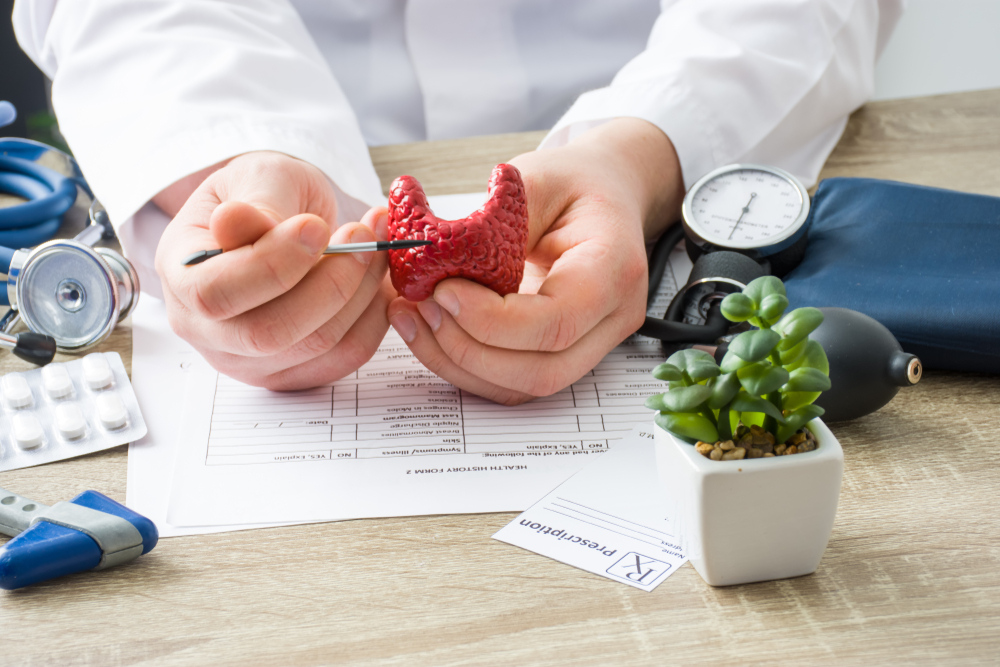Thyroid surgery, medically known as thyroidectomy, is an operation that removes part or all of the thyroid gland, which is located at the base of the neck and plays a crucial role in regulating metabolism and hormone production. The thyroid is butterfly-shaped and situated just below the Adam’s apple. This surgery is typically utilized for the treatment of conditions such as thyroid cancer, benign nodules, an enlarged thyroid, or hyperthyroidism (overactive thyroid). Understanding what to expect throughout the process, from preoperative steps to recovery, is essential in alleviating concerns and promoting a smooth recovery.
Preparing for thyroid surgery: what you need to know
Before undergoing thyroidectomy, a thorough preparation process is necessary to ensure you are ready for surgery and to minimize any risks associated with the procedure. The following steps are usually involved:
Diagnostic tests and imaging
To understand the condition of your thyroid gland, your doctor will recommend several diagnostic tests. These may include:
- Ultrasound, MRI, or CT Scans: These imaging tests allow your healthcare team to visualize the size, shape, and structure of the thyroid gland, as well as identify any tumors or abnormal growths that may need to be addressed during surgery.
- Blood Tests: A comprehensive blood panel will be performed to evaluate your thyroid hormone levels. This helps your doctor understand how well your thyroid is functioning and assists in planning post-surgery care.
Examination of vocal cords
Because the thyroid gland is located near the vocal cords, a special examination of your vocal cords is often necessary. This ensures they are functioning properly before surgery. It also helps your doctor evaluate the risk of any potential damage to the vocal cords during the operation.
Pre-surgical instructions
You may be prescribed medications, such as antibiotics, to reduce the risk of infection. These medications are especially important for individuals who may have compromised immune systems. Your surgeon will give you instructions on any dietary restrictions or lifestyle changes leading up to the surgery.
Thyroidectomy surgery: during the procedure
Thyroid surgery is done under general anesthesia, so you will be asleep throughout the procedure. The extent of the surgery will depend on the reason for the thyroidectomy:
Partial thyroidectomy
If only part of the thyroid gland needs to be removed, a partial thyroidectomy will be performed. The remaining thyroid tissue may continue to produce hormones, and you may not need hormone replacement therapy after surgery.
Total thyroidectomy
In some cases, such as with thyroid cancer or severe hyperthyroidism, a total thyroidectomy is required. This involves the complete removal of the thyroid gland. Following a total thyroidectomy, you will need hormone replacement therapy for the rest of your life to make up for the hormones your thyroid can no longer produce.
The procedure typically takes a few hours, and your surgeon will make an incision in the neck area to access the thyroid gland. Special care is taken to avoid damaging nearby structures, including the vocal cords and parathyroid glands, which regulate calcium levels in the body.
Post-thyroidectomy care: what to expect after surgery
After thyroid surgery, your recovery will depend on the extent of the surgery and your overall health. Here’s what to expect during the recovery phase:
Initial recovery and hospital stay
Most patients are discharged the same day or within 24 hours after surgery. You will be closely monitored to ensure you are recovering well from the anesthesia and that there are no immediate complications.
Incision and wound care
Your surgical site will require attention to promote healing and prevent infection. While you can usually shower the day after surgery, avoid soaking the incision for at least a week. Keep an eye on the area for any signs of infection, such as redness, swelling, or discharge. If you notice any unusual changes, contact your surgeon immediately.
Managing post-surgical symptoms
It is common to experience mild discomfort or swelling around the surgical area in the days following the operation. Some patients may also feel a slight tingling sensation in the fingers or mouth, which could be a sign of low calcium levels due to the removal of parathyroid glands. If this happens, your doctor can prescribe calcium supplements to correct the imbalance.
Activity restrictions and rest
For the first two weeks after surgery, it’s important to rest and avoid strenuous activities, especially those that involve lifting or straining your neck. Follow your doctor’s instructions regarding when it is safe to return to work or resume regular physical activity.
Follow-up appointments
Follow-up care is essential in ensuring that you are healing properly. Your doctor will schedule check-ups to monitor your recovery, assess your hormone levels, and provide any necessary adjustments to your treatment plan. Regular blood tests will help confirm that your thyroid hormone levels are stable, especially if you have had a total thyroidectomy.
Navigating thyroid surgery with confidence
While thyroid surgery may seem intimidating, understanding what to expect before, during, and after the procedure can help ease your mind. By closely following your surgeons’s instructions and staying on top of your follow-up care, you can enjoy a smooth recovery and regain your health. Your ENT specialist will be there for you every step of the way, offering expert guidance and compassionate care throughout your thyroid surgery journey.
If you’re considering thyroid surgery or have questions about the procedure, find an experienced ENT specialist near you to learn more and schedule a consultation.



